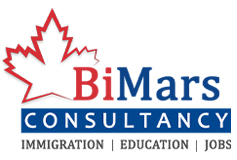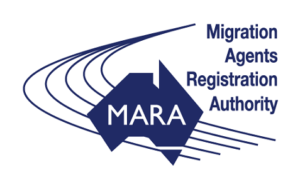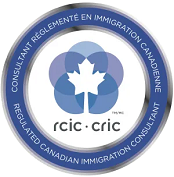IRCC’s immigrant contract funding via province/territory for 2021-22
IRCC will spend about $1.7 billion on immigrant contract and integration offerings throughout Canada this fiscal year. An inner memo displays how IRCC is spending its $1.7 billion agreement price range at some stage in the 2021-22 Canadian authorities fiscal 12 months (April 1 until March 31).
CIC News bought the memo by way of an get admission to to facts request to the Canadian government.
One of the greater noteworthy factors of the memo is how the Department of Immigration, Refugees and Citizenship Canada (IRCC) plans to distribute the dollars throughout the country. IRCC used to disclose this data publicly on its internet site every 12 months however stopped the exercise a decade ago, in 2011.
The memo was once signed and accredited by way of Immigration Minister Marco Mendocino.
IRCC is the greatest funder of immigrant contract and integration offerings in Canada. Each year, it offers funding to accepted provider issuer organizations, and the province of Quebec, to administer offerings to newcomers. Services are on hand to everlasting residents, as nicely as blanketed men and women (i.e., profitable refugee claimants), and these who have been accepted for everlasting residence.
What are immigrant contract services?
Services entail the likes of employment supports, English and French language training, mentorship, and different helps that assist newbies be successful in Canada. Service issuer corporations are generally non-profits that exist to help newcomers; however, they are additionally different varieties of groups (e.g., instructional establishments and non-public businesses) that get approval from IRCC to supply agreement applications to new immigrants (at no value to newcomers). IRCC additionally presents Quebec with a separate supply which the provincial authorities make use of to administer agreement services.
IRCC agreement funding by way of province and territory
The memo suggests that Mendocino accredited the following 2021-22 allocation via province and territory (except Quebec). Note that all figures are rounded and additionally encompass spending projections acquired from IRCC’s publicly accessible 2021-2022 departmental plan:
• Ontario: $407.2 million
• Alberta: $124.1 million
• British Columbia: $119 million
• Manitoba: $46.6 million
• Saskatchewan: $41.3 million
• Nova Scotia: $17.2 million
• New Brunswick: $14.6 million
• Prince Edward Island: $6.2 million
• Newfoundland and Labrador: $5.2 million
• Yukon: $1.3 million
• Northwest Territories: $1.1 million
• Nunavut: $608,000
• Sub total: $784.4 million
• Other allocations: $46 million
• Dedicated IRCC Initiatives: $46.2 million
• Quebec (Not covered in the memo): $650.3 million by using the separate annual supply it receives from IRCC
• Resettlement offerings (Not protected in the memo): $145.7 million
• Grand complete (Not protected in the memo): $1,672.6 billion
Source: IRCC
IRCC’s agreement funding formula
One plausible reason for IRCC’s decision to stop disclosing these records publicly is the resulting debate among provinces, territories, and provider corporate organisations. These stakeholders are in constant contact with IRCC to determine the most attractive funding tiers for their jurisdictions. In the memo, IRCC admits the system’s contentious nature.
The memo outlines that the allocation of funding with the aid of province and territory is primarily based on a federal Cabinet accepted National Settlement Funding Formula. The method allocates funding for every jurisdiction based totally on the three-year common percentage of immigrant landings by using jurisdiction. It additionally offers extra weight to refugees to account for their special contract wishes (refugees tend to require extra agreement offerings than monetary and household category immigrants). Quebec is now not issue to this formulation due to the fact its furnish is calculated primarily based on the formulation outlined in the Canada-Quebec Accord referring to Immigration and Temporary Admission of Aliens signed in 1991. Due to Quebec’s distinctive repute as Canada’s solely French-speaking province, it has greater authority than any different jurisdiction to choose immigrants. It additionally receives extra IRCC contract funding than any jurisdiction and has extra flexibility to use the funding.
Source: IRCC.
Settlement funding per capita
As indicated in Screenshot 2, IRCC decided the 2021-22 allocations primarily based on immigrant landings in every province and territory in 2017, 2018, and 2019. This effects in the following contract funding quantities per capita:
• Nunavut: $16,432
• Quebec: $13,541
• Northwest Territories: $4,622
• Yukon: $4,194
• Newfoundland and Labrador: $3,428
• New Brunswick: $3,072
• Ontario: $3,033
• Alberta: $2,913
• Manitoba: $2,862
• Nova Scotia: $2,857
• Saskatchewan: $2,691
• Prince Edward Island: $2,684
• British Columbia: $2,671
Sources: IRCC; Author’s calculations. The methodology is: Allocations for every province and territory divided with the aid of annual common of every province/territory’s immigrant consumption between 2017-2019.
IRCC’s memo states that smaller jurisdictions get hold of potential constructing funding to enable them to expand the scale of their services. This can also give an explanation for why jurisdictions with low newcomer intakes consisting of Nunavut, the Northwest Territories, Yukon, Newfoundland and Labrador, and New Brunswick are at the pinnacle of the list. Ontario receives extra than the provinces west of it due to it having the perfect refugee consumption in the country.
Quebec leads all provinces due to the beneficent agreement method identified in the Canada-Quebec Accord. Among its provisions, the method dictates the furnish quantity can only extend over time.
What does this all mean?
IRCC goes to splendid lengths to assist immigrants succeed. This is validated by using its contract software accounting for almost half of of the department’s annual $3.6 billion budget. Canada is the greatest funder of immigrant contract offerings in the world.
At the equal time, IRCC has the tough challenge of figuring out how to distribute its contract funding throughout the u. s. in a manner that takes into consideration the wishes of every jurisdiction. This outcomes in an imperfect manner that is concern to excessive scrutiny and debate amongst Canada’s governments, contract company organizations, researchers, and the media.
Quebec enjoys the most funding in absolute phrases as nicely as the 2d most per capita even although its provincial authorities used to be elected in 2018 on a mandate to minimize immigration. The province’s contract funding components was once agreed to in 1991 primarily based on the expectation that Quebec’s immigration stages would make bigger over time to assist compensate for its ageing populace and low delivery rate. However, the election of the Coalition Avenir Quebec (CAQ) celebration in 2018 highlighted a flaw in the formula, as Quebec has considering viewed its annual furnish from IRCC proceed to upward shove as its newcomer consumption declined through 22 per cent in 2019 in contrast to 2018.
Conversely, Alberta, New Brunswick, Prince Edward Island (PEI) and the Northwest Territories have every considered their contract allocations decline this federal fiscal yr due to current declines in their newcomer arrivals. Decreasing allocations to jurisdictions when their newcomer stages decline can also appear fair, however it additionally creates operational challenges. Namely, decrease IRCC funding to a province or territory should come at a time when that jurisdiction sees an enlarge in their inexperienced persons (and hence, traces their potential to supply contract helps to newcomers). In addition, lowered funding ability that provider company corporations may additionally want to scale returned their operations which every now and then entails laying off staff.
IRCC acknowledges such challenges, which is why the memo notes that IRCC will make a one-time switch to their Western Canada operations to top-up the funding supplied to Alberta. The reason of the pinnacle up is to make certain that Alberta can proceed to supply excessive fine agreement helps to its newcomers.
Finally, IRCC acknowledges that similarly investments will be wished to assist future newcomers. The memo states the branch anticipates extra agreement funding to end up reachable as it appears to welcome extra inexperienced persons via its Immigration Levels Plan. The 2021-2023 tiers format is the most formidable in Canadian records as it seeks to welcome over 400,000 new immigrants per year. Since its founding in 1867, Canada has welcomed 400,000 immigrants in 12 months simply once, in 1913. As such, the memo shows an expectation the allocation for all provinces and territories (excluding Quebec) will amplify with the aid of every other $100 million for the 2023-24 federal fiscal year. This suggests the department’s complete contract spending will attain some $2 billion yearly inside the subsequent few years.



